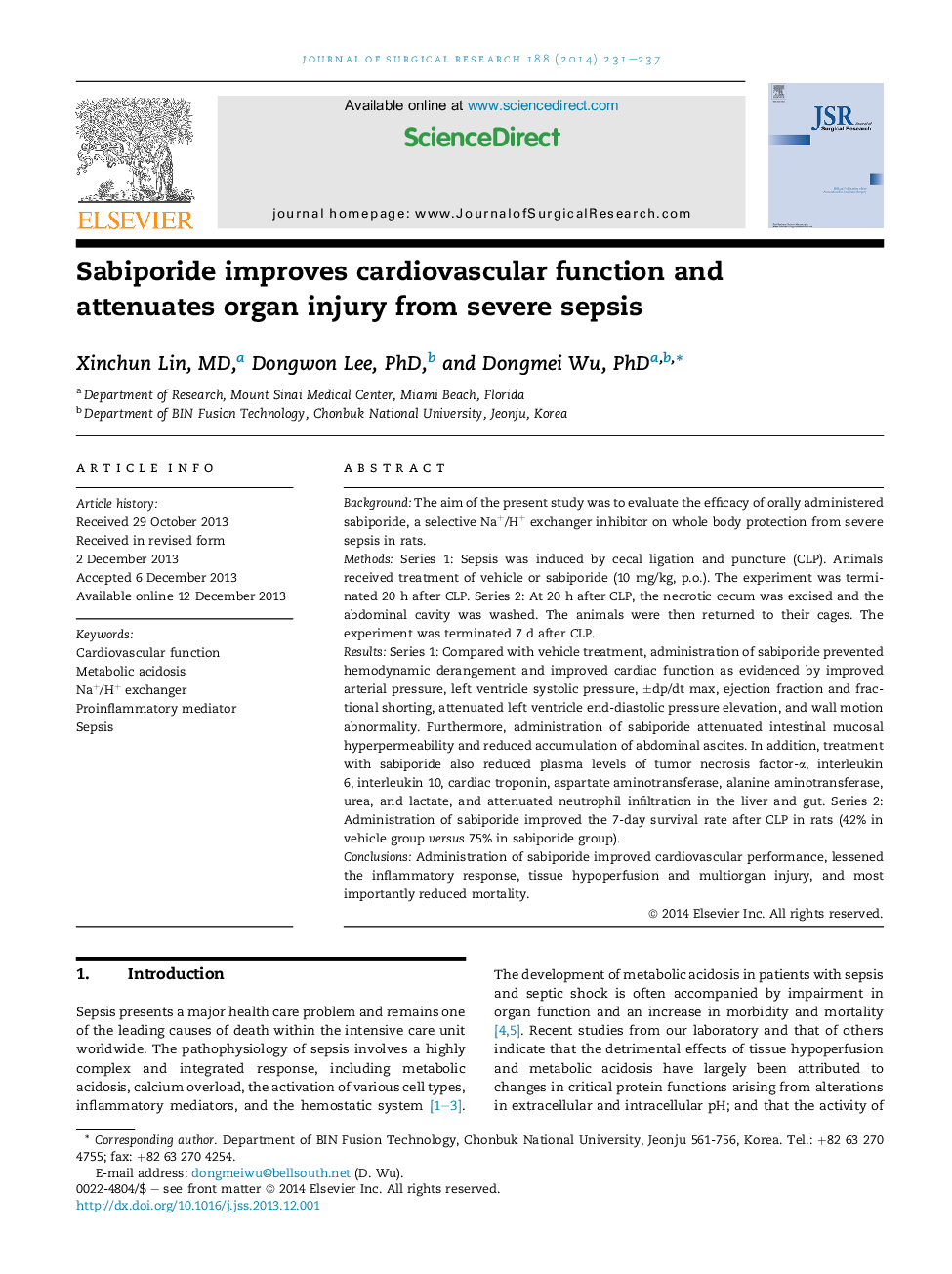| Article ID | Journal | Published Year | Pages | File Type |
|---|---|---|---|---|
| 4300243 | Journal of Surgical Research | 2014 | 7 Pages |
BackgroundThe aim of the present study was to evaluate the efficacy of orally administered sabiporide, a selective Na+/H+ exchanger inhibitor on whole body protection from severe sepsis in rats.MethodsSeries 1: Sepsis was induced by cecal ligation and puncture (CLP). Animals received treatment of vehicle or sabiporide (10 mg/kg, p.o.). The experiment was terminated 20 h after CLP. Series 2: At 20 h after CLP, the necrotic cecum was excised and the abdominal cavity was washed. The animals were then returned to their cages. The experiment was terminated 7 d after CLP.ResultsSeries 1: Compared with vehicle treatment, administration of sabiporide prevented hemodynamic derangement and improved cardiac function as evidenced by improved arterial pressure, left ventricle systolic pressure, ±dp/dt max, ejection fraction and fractional shorting, attenuated left ventricle end-diastolic pressure elevation, and wall motion abnormality. Furthermore, administration of sabiporide attenuated intestinal mucosal hyperpermeability and reduced accumulation of abdominal ascites. In addition, treatment with sabiporide also reduced plasma levels of tumor necrosis factor-α, interleukin 6, interleukin 10, cardiac troponin, aspartate aminotransferase, alanine aminotransferase, urea, and lactate, and attenuated neutrophil infiltration in the liver and gut. Series 2: Administration of sabiporide improved the 7-day survival rate after CLP in rats (42% in vehicle group versus 75% in sabiporide group).ConclusionsAdministration of sabiporide improved cardiovascular performance, lessened the inflammatory response, tissue hypoperfusion and multiorgan injury, and most importantly reduced mortality.
